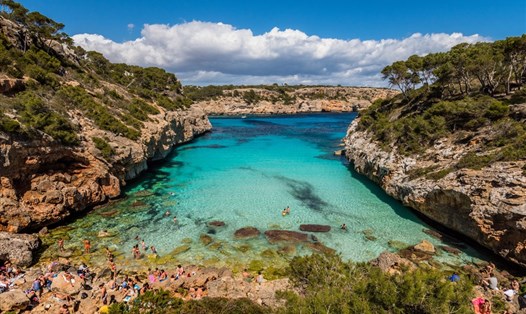Specifically, each tourist coming here will have to pay an "entrance fee" of 3-10 Euros (about 70,000-240,000 VND). Ticket prices will vary depending on the number of passengers, if there is more demand, the higher the price.
Initially, the city government planned to implement fee collection from this summer as a way to limit the large number of tourists. However, at the end of May, the plan was decided to be postponed to the beginning of next year.
CNN reported that Simone Venturini, a member of the Venice Tourism Council, called the tourism tax a "great revolution".
"Venice is a livable city and it must stay like that," Venturini said, explaining the goal of minimizing "overloaded travel".
Not only paying the fee, travelers during the day will have to register online to see which day they plan to visit Venice. Ticket prices depend on the time of year and the crowdedness of the city at that time. Those who do not declare and pay this amount will risk being fined up to 300 Euros (7.5 million VND).
Children under 6 years old will be given free admission to Venice. Meanwhile, those who book overnight hotel rooms will also be exempted from tickets because they have paid 5 Euros (about 130,000 VND) in tax per night.
Venice is a famous city that attracts a huge number of tourists. In 2019, about 19 million tourists came here to visit. Of which, 4/5 of the visitors traveled during the day and only 1/5 stayed overnight.
The situation of tourists on a day is too crowded, causing Venice to face many problems, from environmental pollution, flooding to crowded roads, shops... Therefore, the idea of collecting fees for tourists has been considered since 2019 as an effort to combat the situation of massive tourism.
"The goal of this measure is not to make money, but we want to protect Venice. The city's weak infrastructure is no longer in line with the trend of heavy-duty tourism," said Committee member Simone Venturini.
However, this work also faced some mixed opinions. Many store owners and traders are concerned that collecting entrance fees to limit tourists may make tourists mistaken Venice for a commercial city, losing its original status as a tourist city.
On the other hand, some people support fee collection. Because this is a way to help "clean" tourists, eliminate visitors who are unable to pay, reduce the pressure on street traffic and infrastructure for this city. In contrast, tourists who accept spending money to visit Venice will spend more, contributing to the city's prosperity.



